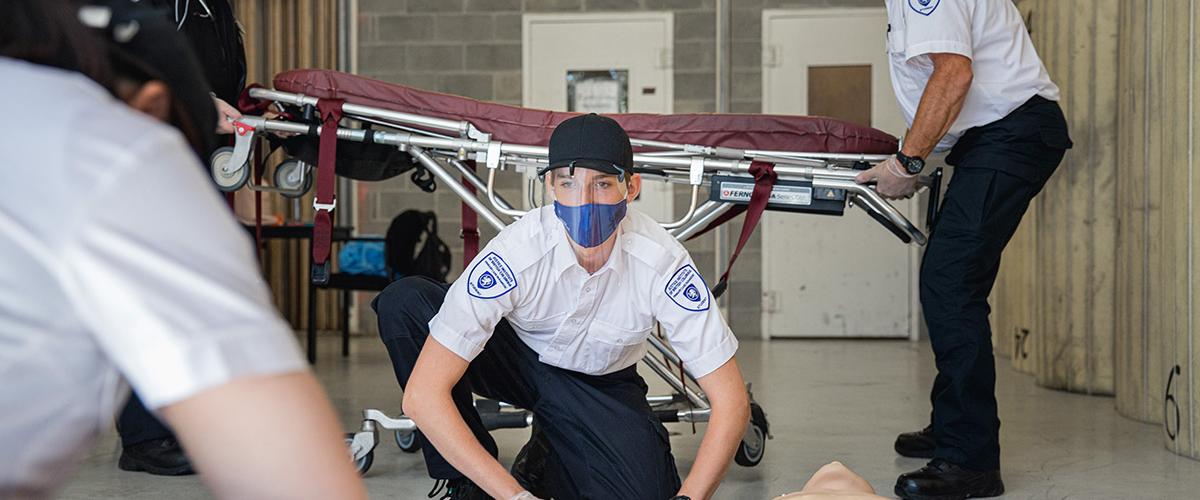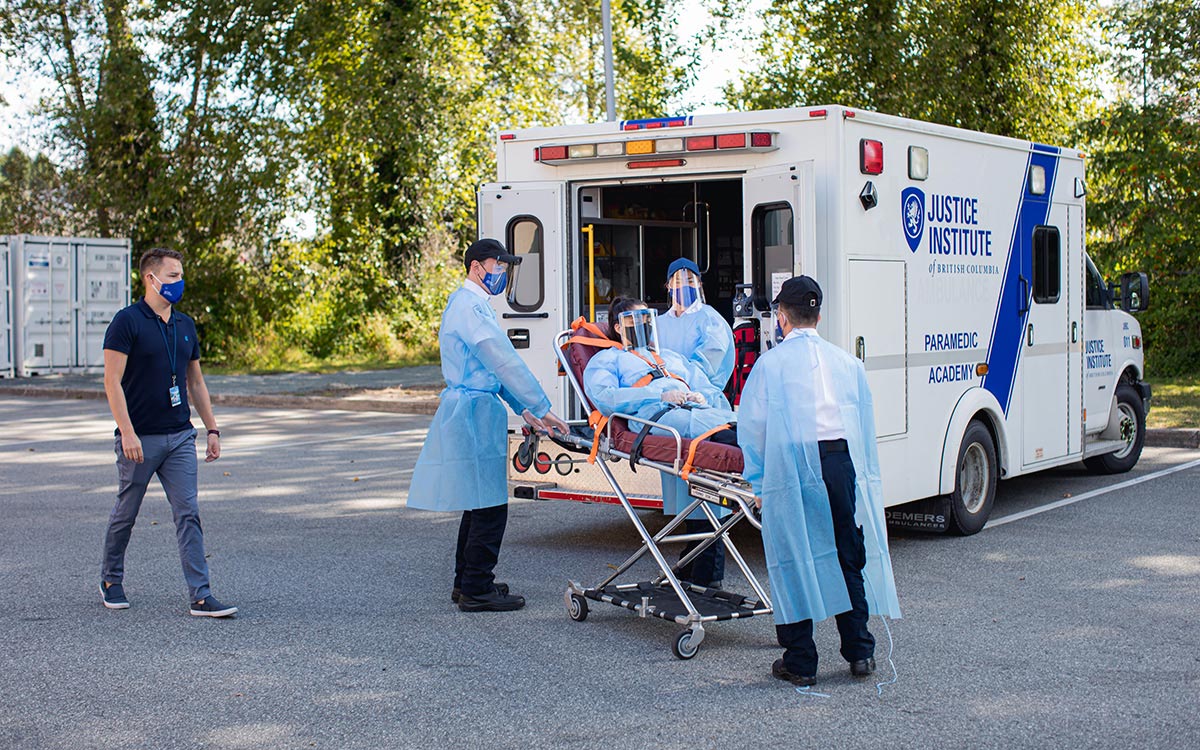Working as a paramedic is a rewarding, fast-paced career where no two days are the same. As a paramedic, you play a critical role in saving lives and supporting your community. You’ll assess and treat medical emergencies, transport patients by ambulance, and apply advanced critical thinking skills—often under pressure. It’s a unique and meaningful profession.
This guide answers the most common questions about how to become a paramedic in British Columbia.
How long does paramedic training take in B.C.?
Training typically takes 1 to 3 years, depending on your career goals. Here’s the most common pathway:
Start with the Emergency Medical Responder (EMR) Certificate
This 25-day course provides foundational knowledge in emergency care and is a prerequisite for the Primary Care Paramedic (PCP) Program.Complete the Primary Care Paramedic Program at JIBC
The extended PCP Certificate takes about 12 months to complete. It’s delivered in a blended format with online learning, in-person sessions, and hands-on practical training.
Once you complete the PCP Program, you're certified as a Primary Care Paramedic.
To work as a paramedic in B.C., you must meet licensing requirements. This includes passing a practical exam with the Emergency Medical Assistants Licensing Board (EMALB) and the Canadian Organization of Paramedic Regulators’ national PCP licensing exam.
How much money do paramedics make in B.C.?
Wages vary based on your license level:
Emergency Medical Responder: $20–$30/hour
Primary Care Paramedic: $33–$44/hour
Advanced Care Paramedic: $43–$54/hour
Most paramedics also receive benefits such as dental coverage, paid vacation, and sick leave.
Can I become a paramedic without going to university?
No university degree is required. To become a paramedic in B.C., you must:
Be a high school graduate
Demonstrate English language proficiency
Graduate from a recognized paramedicine program
Pass a criminal background check
Be up to date on immunizations and medical screenings
How can I progress in my career if I’m already a certified primary care paramedic?
If you're already certified and practicing, here’s how to advance your career:
Enroll in the Diploma in Health Sciences
This flexible program is available online, full-time or part-time, and designed for working paramedics.Apply to the Advanced Care Paramedic Program
Completion of the diploma makes you eligible for ACP training.Transfer to Thompson Rivers University
Earn up to 60 credits toward a Bachelor of Health Sciences degree, opening doors to roles in healthcare leadership, education, and more.
How much does a paramedics program in B.C. cost?
At JIBC, tuition costs are as follows:
Primary Care Paramedic Program: $8,600
Diploma in Health Sciences: $6,800
Advanced Care Paramedic Program: $18,000
Fees may vary by institution.
Is 45 too old to become a paramedic? Is there an age limit?
There’s no upper age limit! You must be at least 18 and have a high school diploma to apply. In fact, life experience and diverse professional backgrounds often enhance your learning and effectiveness in the field.
Is paramedic schooling difficult in B.C.?
Paramedic programs are rigorous for a reason—they prepare you for real-world emergencies. Training focuses on skills needed to assess and manage patients in pre-hospital settings. You’ll gain a strong foundation in anatomy, physiology, pathophysiology, and pharmacology to sharpen your clinical judgment and emergency response skills.
If you have more questions about becoming a paramedic, feel free to email pcp@jibc.ca for more information or check out our Paramedicine & Health sciences program page here for a high-level overview of all programs we offer.

